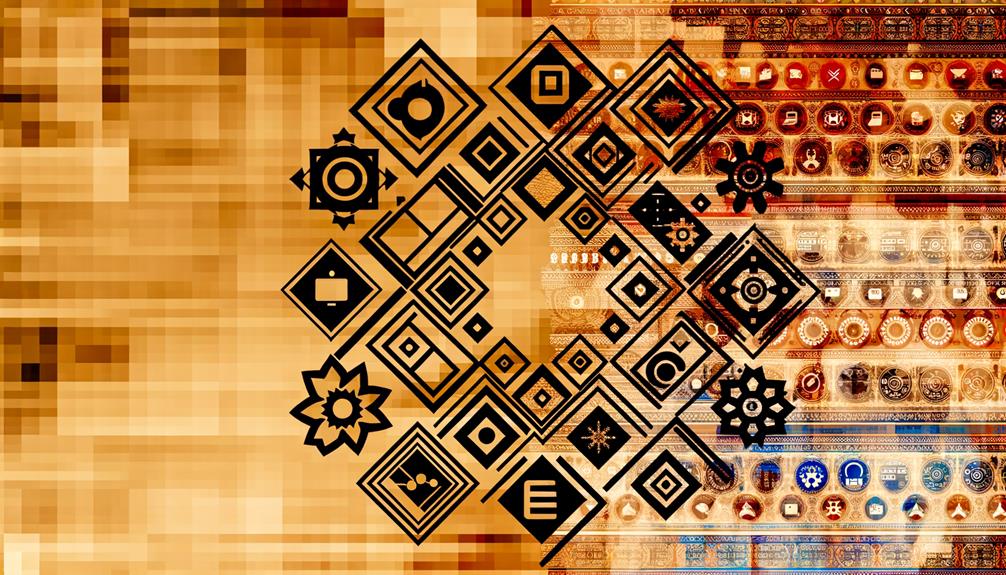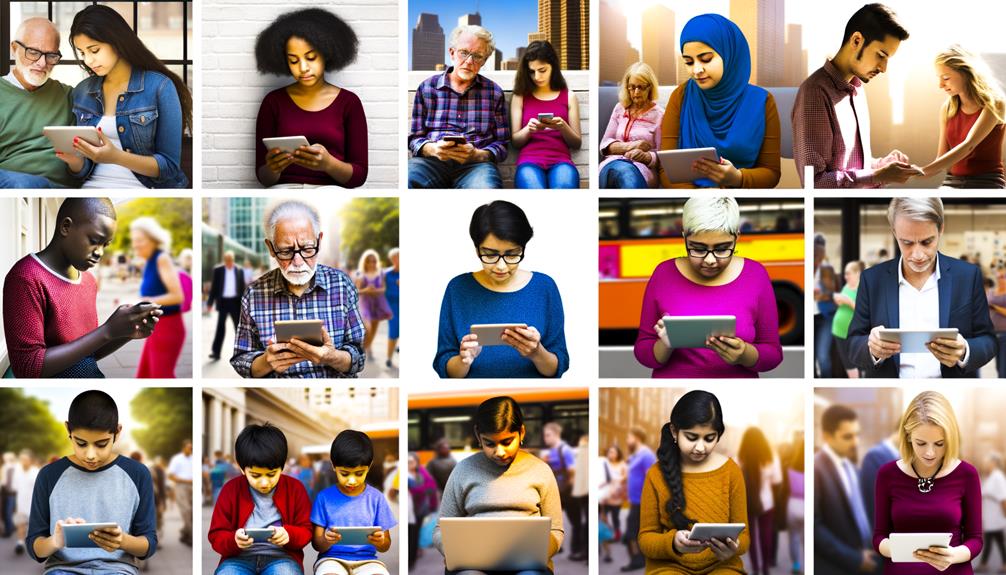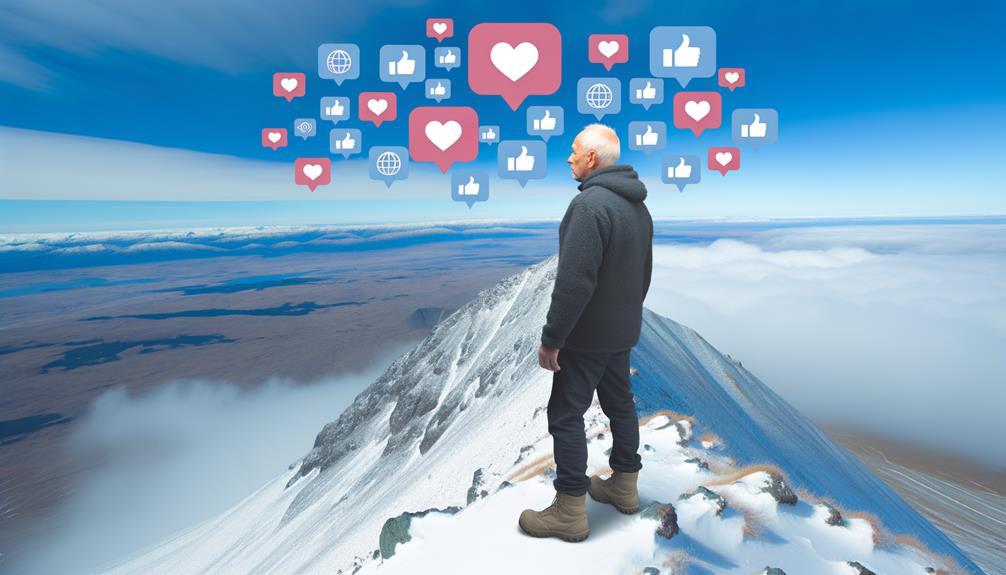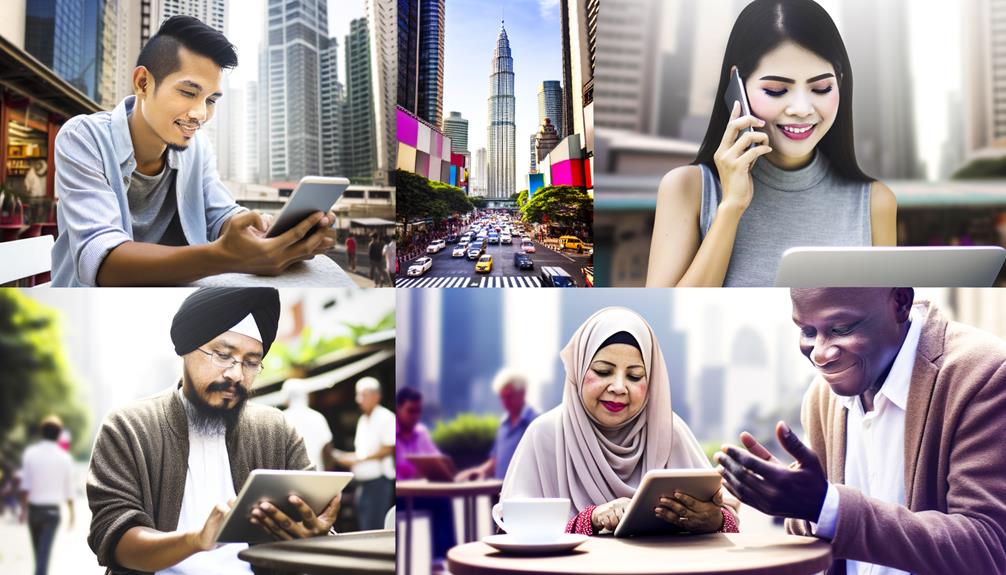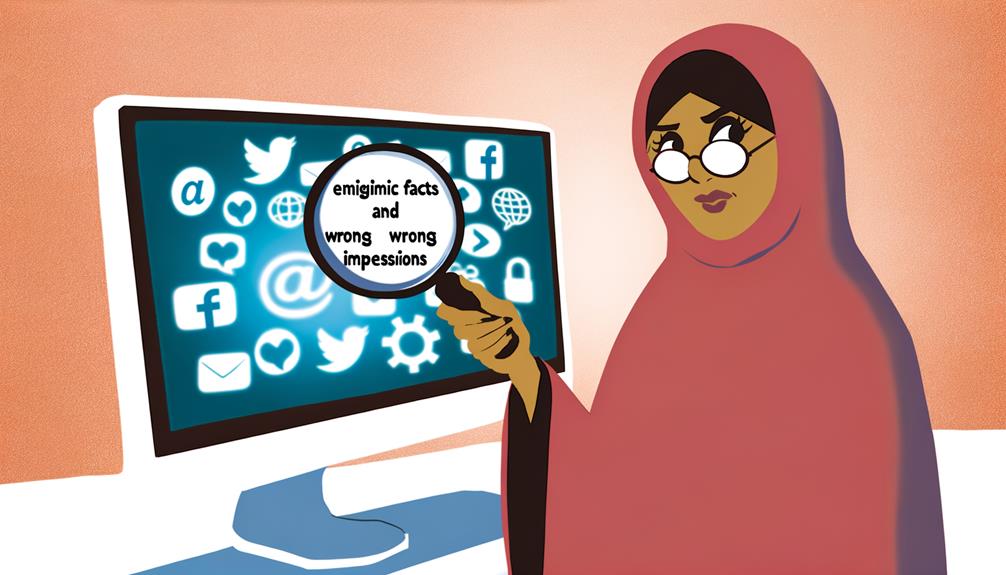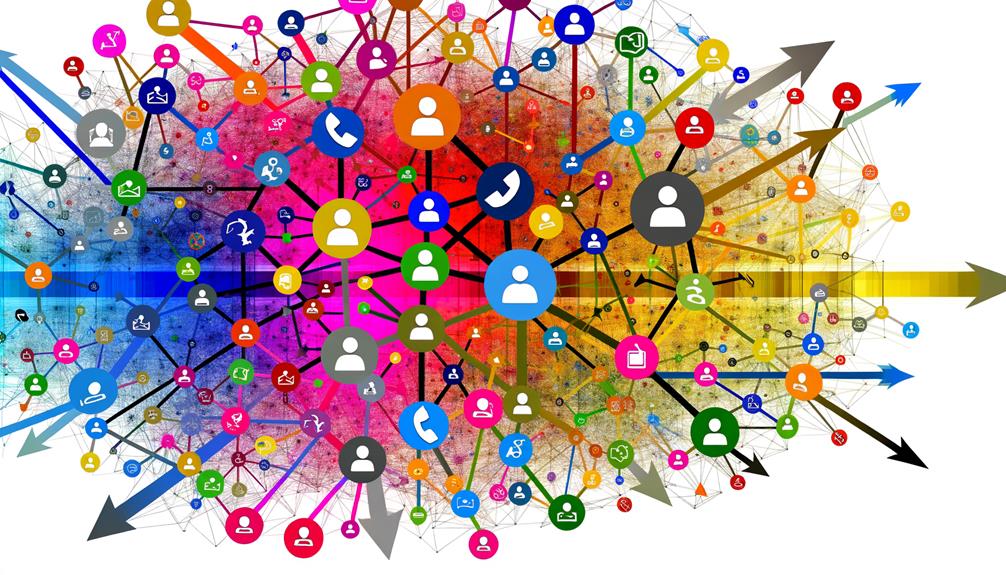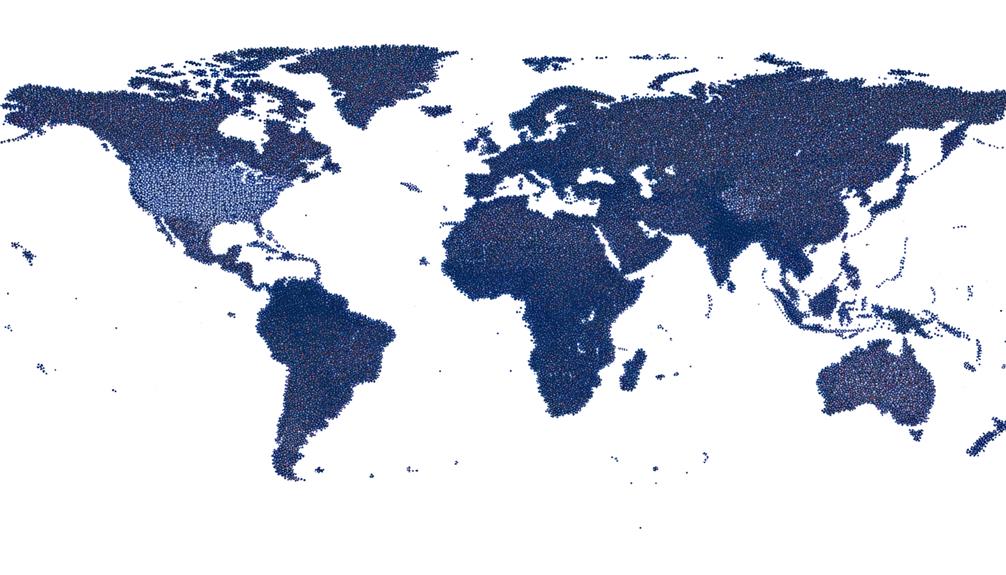Imagine social media as a modern-day mirror, reflecting and refracting societal values, beliefs, and behaviors. As you scroll through your feed, consider the profound impact these platforms have on the fabric of our society.
From shaping cultural norms to influencing political conversations, social media’s reach is vast and its influence pervasive. But what are the implications of this digital mirror held up to our collective consciousness?
Stay tuned to explore the intricate web of connections between social media and the ever-evolving landscape of culture and society.
Evolution of cultural norms
Throughout history, cultural norms have continuously evolved in response to societal changes. You play a crucial role in this ongoing transformation. Your beliefs, actions, and interactions are all part of the intricate web that shapes cultural norms.
As you engage with social media platforms, you contribute to the collective consciousness that influences societal values and behaviors. Your participation in online discussions, sharing of content, and interactions with others all have the potential to challenge existing norms and catalyze change. Social media amplifies voices, giving individuals like yourself a platform to express opinions and perspectives that may have been marginalized in the past.
By actively engaging with diverse viewpoints and experiences, you help broaden the conversation and push boundaries. As you navigate the digital landscape, remember the power you hold in shaping cultural norms. Your words, choices, and interactions matter.
Embrace this opportunity to be a positive force for change, sparking conversations that challenge the status quo and promote inclusivity. Together, we can continue to evolve cultural norms towards a more equitable and understanding society.
Amplifying voices of marginalized communities
To uplift marginalized communities, social media serves as a powerful tool for amplifying their voices and advocating for their rights and representation. Through various online platforms, individuals from marginalized communities can share their stories, experiences, and perspectives with a global audience, fostering empathy and understanding. Social media enables these communities to organize and mobilize for social justice causes, creating real-world impact and driving positive change.
- Visibility: Social media provides a platform for marginalized groups to showcase their talents, achievements, and contributions, challenging stereotypes and misconceptions.
- Solidarity: Online communities offer a sense of belonging and support to individuals facing discrimination, connecting them with others who share similar struggles and aspirations.
- Advocacy: Through hashtags, viral campaigns, and online petitions, social media amplifies the voices of marginalized communities, drawing attention to important issues and demanding accountability from those in power.
Commercialization of social causes
The commercialization of social causes has led to a blending of activism and marketing strategies in the realm of social media. Companies are increasingly aligning themselves with social issues to boost their brand image and attract socially conscious consumers. This trend has given rise to a phenomenon known as ’cause marketing,’ where businesses associate their products with specific social causes to increase sales and show support for important issues.
On social media platforms, this blending of social causes and commercial interests is evident in sponsored posts, collaborations between influencers and brands, and campaigns that raise awareness while promoting products. While this can be beneficial in spreading awareness about important causes to a larger audience, it also raises questions about the authenticity of these efforts. Consumers are becoming more discerning and expect brands to not just jump on a social cause bandwagon for profit but to genuinely contribute to positive change.
Ultimately, the commercialization of social causes on social media has transformed the way activism is carried out, creating new challenges and opportunities in the intersection of business and social responsibility.
Influence on political discourse
Social media platforms play a significant role in shaping political discourse by amplifying voices, facilitating rapid information dissemination, and influencing public opinion. Through social media, individuals have the power to express their viewpoints to a vast audience instantaneously. This ability to share opinions and information has transformed the way political discussions unfold in society.
Here are three ways social media influences political discourse:
- Echo Chambers: Users tend to engage with like-minded individuals and content, reinforcing existing beliefs and ideologies.
- Viral Trends: Political messages or news can quickly go viral, capturing the attention of millions and shaping public discourse.
- Engagement with Politicians: Social media provides a direct channel for constituents to interact with political figures, influencing policy decisions and public perceptions.
In essence, social media has become a dynamic arena where political conversations thrive, opinions are amplified, and public discourse evolves rapidly.
Shaping identity and self-perception
Navigating through social media platforms, you often find yourself sculpting your identity and self-perception based on the content you consume and the interactions you engage in. Social media serves as a mirror reflecting back aspects of yourself, influencing how you see yourself and how you want others to perceive you.
| Positive Impacts | Negative Impacts |
|---|---|
| Offers a platform for self-expression and exploration | Can lead to unrealistic comparisons and feelings of inadequacy |
| Facilitates connection with like-minded individuals | May foster echo chambers and limit exposure to diverse perspectives |
| Provides opportunities for personal growth and learning | Can result in addiction and excessive validation-seeking behavior |
| Allows for creative self-representation | May blur the lines between reality and curated online personas |
In this digital age, it is crucial to approach social media mindfully, understanding its power to shape your identity and self-perception. By being aware of how you engage with online content, you can harness the positive aspects of social media while safeguarding your mental well-being.
Conclusion
As you scroll through your social media feeds, remember the power you hold in shaping culture. Your likes, shares, and comments can amplify marginalized voices and drive social change.
But be wary of the commercialization of social causes and the manipulation of political discourse. Stay true to yourself and be mindful of how social media influences your identity and self-perception.
In this digital age, you have the ability to both empower and challenge societal norms.

